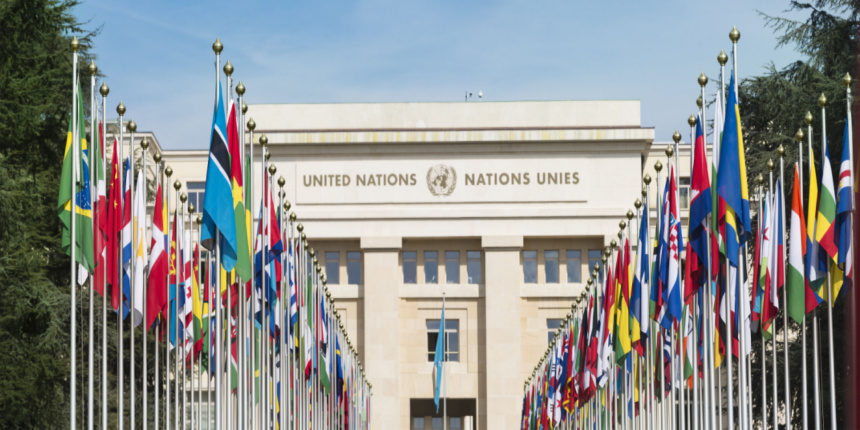UN Full Form
What is the full form of UN?
The international body, the United Nations (UN), was founded on October 24, 1945. The second multipurpose international organisation with a global membership and scope was the United Nations (UN), which was founded in the 20th century. It had 51 members state in 1945, which is currently expanded to 193 member states. It was replaced by the League of Nations, which was created in 1919 as a result of the Treaty of Versailles and disbanded in 1946. The UN has its main headquarters in New York City and regional offices in Geneva, Vienna, and Nairobi. Arabic, Chinese, English, French, Russian, and Spanish are its official languages.
- What is the full form of UN?
- Aims Of UN
- Structure Of UN

Aims Of UN
The UN was founded for the purpose of maintaining international peace and security. Achieving global cooperation to address global issues of an economic, social, cultural, and humanitarian nature, upholding and promoting human rights, and serving as a hub where nations can coordinate their efforts toward these various goals are among the important objectives. These objectives also include fostering friendly relations between nations based on the values of equality of rights and the right of people to self-determination.
Structure Of UN
The General Assembly is the UNO's body with the broadest representation. This is where the majority of the UN's decision-making occurs, and all members have an equal voice. Its headquarter is in New York City, and among its duties are determining the UN's budget, designating alternates for the Security Council, and approving resolutions that serve as the voice of the international community but are not legally obligatory.
The United Nations Organization's six most important organs are
The General Assembly
Economic and Social Council.
Security Council
Intergovernmental Court of Justice
Council of Trustees
Administrative body
Frequently Asked Questions (FAQs)
The headquarters of the UN is in Newyork.
Current Secretary general of UN is António Guterres.
The Security Council is the UN's most powerful organisation. The Security Council has the authority to impose financial sanctions on countries, issue cease-fire orders during hostilities, and sanction the deployment of UN member country troops.
Only one nation has ever voluntarily or involuntarily left the United Nations, and that nation was Indonesia.
Most of the control at the UN is held by the General Assembly, Security Council, and UN Secretary-General. Most of the decisions and actions of the UN are governed by these factors. However, the UN charter distributes authority among a number of distinct entities, and no one has complete authority over the organisation.

